There’s nothing like a roomful of NWP colleagues to fill up your Goodreads list. Every time I’m at an NWP event I’m always asking, and hearing asked, the same question: “What are you reading now?” This applies, of course, to personal and professional reading. As site leaders prepare for upcoming summer institutes, we wanted to share the newest titles on the NWP bookshelves related to writing: both teaching writing and supporting teacher-writers. We encourage you to think about these titles for your summer institute, for a book club, or for your writing group. As always, we remind you that your purchases through NWP support further investments in publication of NWP-scholars’ work.
Teachers As Writers
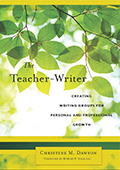 The Teacher-Writer by Christine M. Dawson
The Teacher-Writer by Christine M. Dawson
The Teacher-Writer shows how teachers can pursue and sustain personally and professionally worthwhile writing practices, even amidst the many demands associated with teaching. It meets teachers wherever they are—as novice teachers just beginning to pursue writing, as teachers emerging from a professional development experience, or as accomplished writers seeking to further their craft. The book provides strategies to help teachers get started on projects, build energy for writing, overcome obstacles of limited time, create support systems using online technologies, and develop coherence across their writing lives. The text includes useful writing group routines, questions for framing collaborative inquiry, methods for adapting writing communities to online settings, and rich examples of conversations and texts shared in actual teacher writing group meetings.
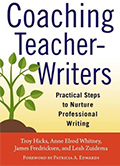 Coaching Teacher-Writers by Troy Hicks, Anne Elrod-Whitney, Jim Fredricksen, Leah Zuidema
Coaching Teacher-Writers by Troy Hicks, Anne Elrod-Whitney, Jim Fredricksen, Leah Zuidema
When teachers write, good things can happen; writing helps educators to better understand themselves, as well as students, parents, and colleagues. This practical book illustrates how to encourage, lead, and sustain teacher-writers, especially in group contexts. In contrast to guides on writing and teacher research, this book is designed for those who support teacher-writers, such as teacher educators and writing project teacher-leaders. The authors offer descriptions of key practices they have developed over years of coaching, teaching, and collaborating with K12 teachers who write about classroom instruction, teacher research, or advocacy for better policy and pedagogy. Knowing firsthand just how hard writing can be for teachers, they provide a repertoire of strategies to elicit writing, to support teachers as they write, to find audiences for the teachers work, and much more.
Teaching Writing
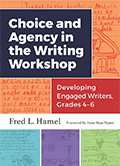 Choice and Agency in Writing Workshop by Fred Hamel
Choice and Agency in Writing Workshop by Fred Hamel
Step into an upper elementary school classroom and “listen in” on the writing motivations of students who are given significant choice and agency in the development of their writing. Discover why upper elementary children need ways to become literate as kids, not merely as prototypes of adults or teenagers. Filled with rich portraits of in-class writing interactions and challenges, this book highlights various themes that help teachers become better observers and more responsive to the complexity of writing in children’s lives. Key themes include drawing and popular media in children’s learning, the challenges of listening to students during conferences, the intersections of writing and relationships, the roles of sharing and publishing writing, and the importance of shaping a writing curriculum through dialogue.
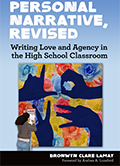 Personal Narrative Revised by Bronwyn LaMay
Personal Narrative Revised by Bronwyn LaMay
LaMay shows readers how to transform high school classrooms and schools into places where youth can explore the intersection between literacy and their lives. This book is the culmination of a literacy curriculum that the author and her high school students wrote dialogically, beginning with their attempt to define love. Through real-life classroom examples, they demonstrate how an innovative curriculum that intertwines personal and academic engagement can create space for students to explore their identities, connect to literary texts, and develop agency as writers and thinkers. In this important contribution to literacy educators, the author shows how personal narratives can help students rebuild their fractured relationships with school and envision writing and academic achievement as playing a role in their futures.
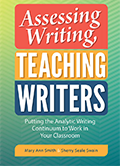 Assessing Writing, Teaching Writing by MaryAnn Smith and Sherry Swain
Assessing Writing, Teaching Writing by MaryAnn Smith and Sherry Swain
Many writing teachers are searching for a better way to turn student writing into teaching and learning opportunities without being crushed under the weight of student papers. This book introduces a rubric designed by the National Writing Project—the Analytic Writing Continuum (AWC). The authors use sample student writing and multiple classroom scenarios to illustrate how teachers have adapted this flexible tool to meet the needs of their students, including using the AWC to teach revision, give feedback, direct peer-to-peer response groups, and serve as a formative assessment guide. This resource also discusses how to set up a local scoring session and how to use the AWC in professional development.
By Tanya Baker